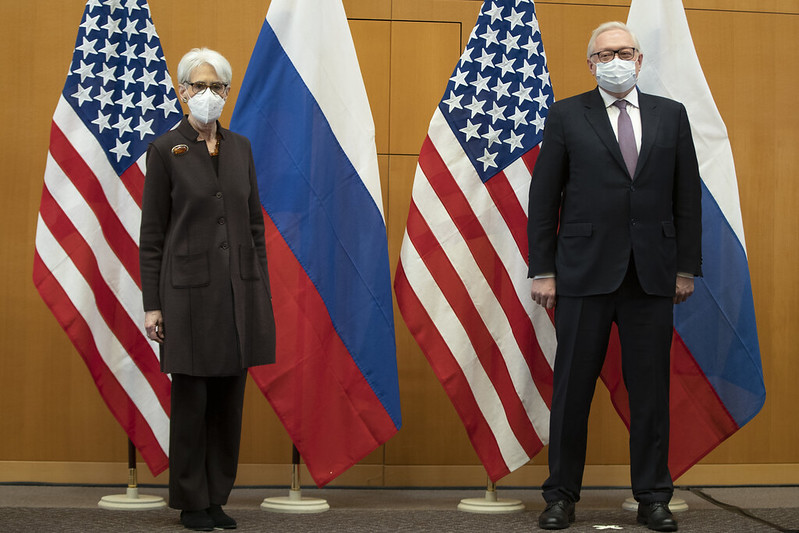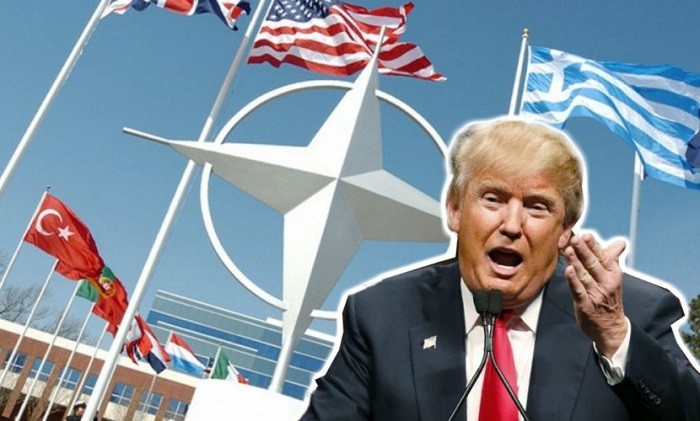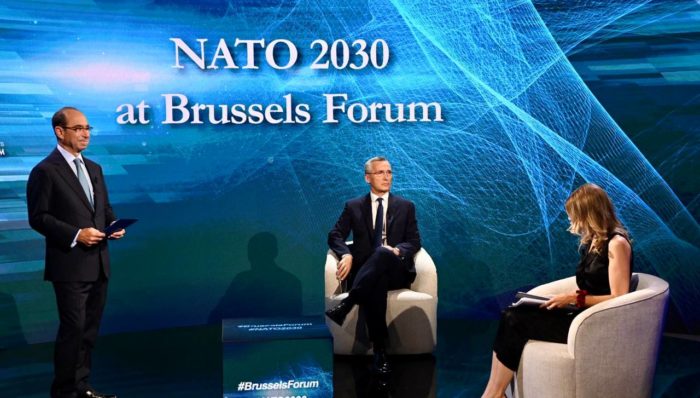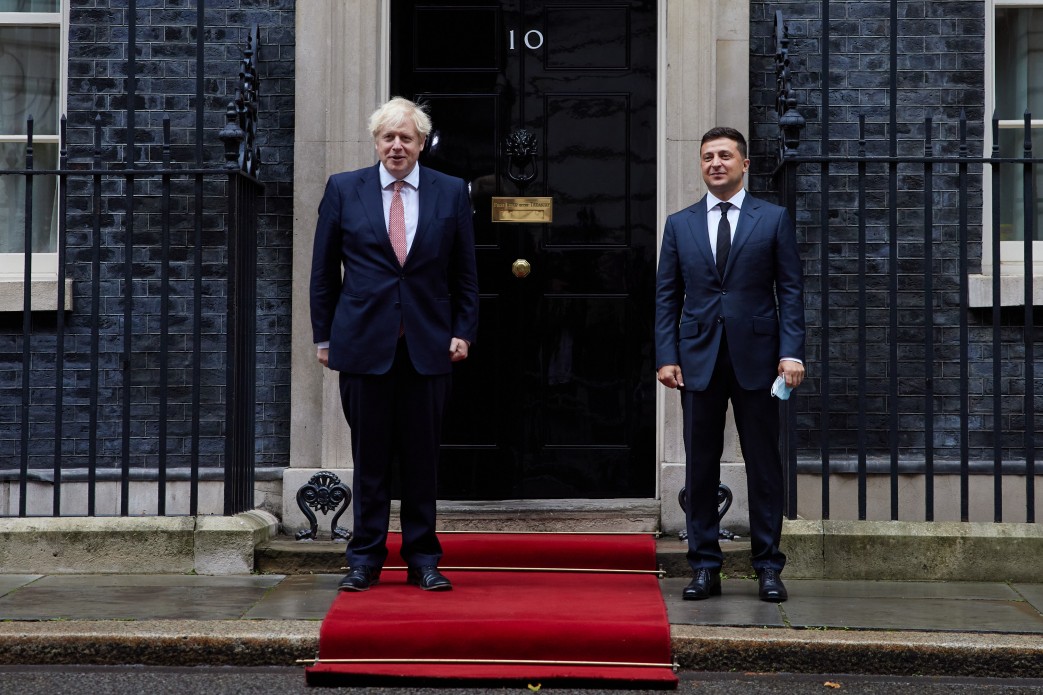Last week, the international community anxiously observed Russia’s sessions with various Western representatives. Over the span of four days, Russian delegates met with officials from the United States, NATO, and the Organization for Security and Cooperation in Europe to discuss the situation near eastern Ukraine.
Over 100,000 Russian troops have mobilized near the Donbas, and many fear that the Russian Federation is preparing a second military incursion into eastern Ukraine.
As Western leaders gathered for these summits, few believed that the Russia-West talks would produce any meaningful results. To date, the international community has implemented numerous sanctions on Russia. Despite these penalties, the Russian Federation has done little to alter its aggressive behavior.
Under the guidance of Russian President Vladimir Putin, Russia has continued to meddle in the affairs of its neighbors, interfered in free and fair elections around the world, provided financial and military assistance to authoritarian rulers, and launched cyberattacks on foreign governments.
These actions show that Russia is hardly easing its involvement around the globe.
The international community was also baffled by Russia’s talking points ahead of these summits. Prior to their meetings with Western officials, Russia presented a list of security demands to the United States and NATO.
Putin’s offer to “stop NATO expansion”: the reason behind Russia’s month of aggression
Unsurprisingly, the United States, NATO, and the OSCE dismissed Russia’s demands.
They reiterated that they would support Ukraine’s sovereignty and territorial integrity. They also demanded that Russia deescalate the situation near the Donbas.
The West announced that it had prepared stiffer sanctions on Russia, and these penalties would be implemented if Russia was to launch a new invasion into Ukraine. These threats did not concern Russia, and the Eastern European state countered by stating that it would give the West a week to respond before any further actions were taken.
No meaningful agreements from Russia-West talks
The conclusion of the summits presented a sense of uncertainty as the West was unable to reach any meaningful agreements with the Russians after the Russia-West talks.
Many speculate that Russia may proceed with its new incursion into Ukraine, given that little was achieved at these summits. But no one is certain how Russia would launch a new invasion. Would Russia be willing to undertake a three-front war in Ukraine by sending troops through Belarus, Crimea, and the Donbas? Or would further intervention be more subtle?
In other words, the situation remains tense near eastern Ukraine, and the international community is on high alert.
The West stated that it was firmly behind Ukraine during the summits, but the recent meetings underscored the current stand-still between the West and Russia.
The international community also does not know how it will respond. The United States, as well as some countries within the European Union, have stated that they will impose more damaging sanctions on Russia if it launches a new invasion into Ukraine. For example, these stiffer penalties could target Putin and his inner circle.
The West has also considered cutting off Russia from SWIFT, the global economic payment messaging system. Recent reports, however, suggest that Russia’s removal from SWIFT may no longer be an option.
Others EU members argue that the West should implement these new penalties now, rather than waiting for Russia’s next course of action. Current sanctions have done little to deter Russia’s behavior since 2014. Moreover, hours after the summits had ended, a massive cyberattack knocked out key Ukrainian government websites.”
Ukrainian official sites under massive cyberattack with a Russian trace
Ukrainian authorities investigated the attacks, and these officials stated that Russia likely orchestrated the attack. Recent reports also noted that some Russian forces traveled to Belarus for joint military drills. These actions suggest that Russia is unwilling to deescalate the situation near Ukraine.
Overall, the West’s relationship with Russia is tense, and the future is clouded by speculation. Based on the results of the recent summits, the West must be prepared to take a stand.
Rather than waiting for a new Russian incursion into eastern Ukraine, the West must implement stiffer penalties on Russia now to try and deter this country from further aggression. Otherwise, if the West continues to delay its efforts, then its response may be too little and too late.








